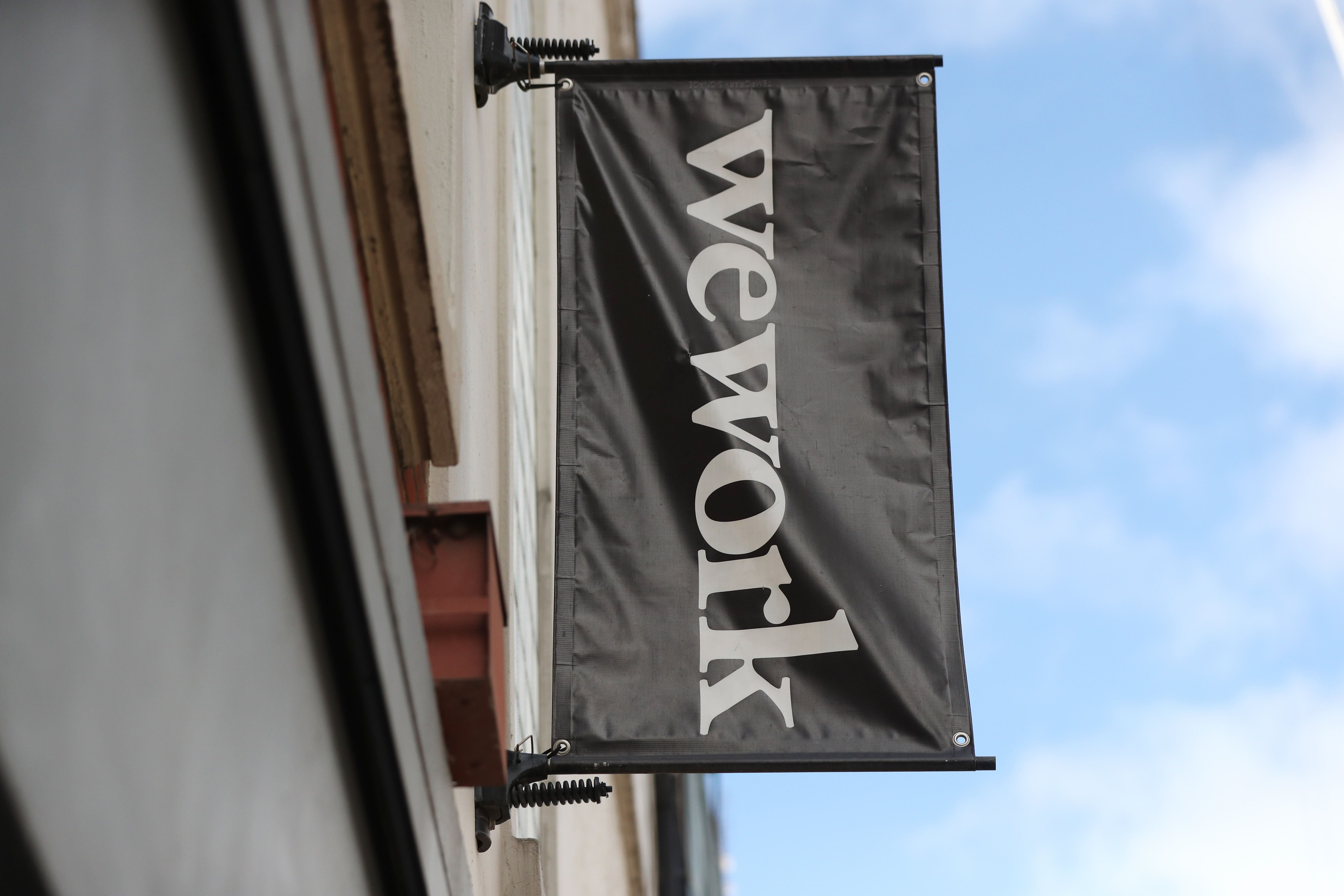WeWork hopes to turn a corner after ‘painful’ global restructuring
The office sharing company said it had trimmed its offices in the UK and Ireland and was focusing on 40 profitable locations.

Your support helps us to tell the story
From reproductive rights to climate change to Big Tech, The Independent is on the ground when the story is developing. Whether it's investigating the financials of Elon Musk's pro-Trump PAC or producing our latest documentary, 'The A Word', which shines a light on the American women fighting for reproductive rights, we know how important it is to parse out the facts from the messaging.
At such a critical moment in US history, we need reporters on the ground. Your donation allows us to keep sending journalists to speak to both sides of the story.
The Independent is trusted by Americans across the entire political spectrum. And unlike many other quality news outlets, we choose not to lock Americans out of our reporting and analysis with paywalls. We believe quality journalism should be available to everyone, paid for by those who can afford it.
Your support makes all the difference.WeWork has hailed the end of a “painful” process of restructuring its office spaces in the UK and Ireland, as a top boss pledged to not repeat the mistakes of the business’s past.
The office sharing company filed for chapter 11 bankruptcy protection in the US in November after amassing heavy debts, but expects to emerge from it this month.
It has since been taking drastic action to get rid of the co-working spaces that were not making it money and renegotiating leases on those it wants to keep.
On Wednesday, WeWork said it had completed this work in the UK and Ireland, marking a “milestone” for the group.
It is has trimmed down its estate from about 50 to 40 offices across the region, based in London, Cambridge, Edinburgh, Birmingham, Manchester and Dublin.
It is still a really big business, but we had to get rid of those liabilities where we could never make money
It shut down a handful of offices in London and a flagship building in Manchester as part of the restructuring, and secured new leases with landlords to whom it pays rent.
Globally, it closed 160 offices and amended more than 170 office leases, a move which it said will reduce future rent costs by a projected 12 billion US dollars (£9.4 billion).
Ben Samuels, WeWork’s chief revenue officer, said it “turned out to be one of the most complex global financial reorganisations ever”.
“It is still a really big business, but we had to get rid of those liabilities where we could never make money – where rent was simply too high, the space we had was outdated… just not fit for purpose for today’s market.”
WeWork was set up in 2010 and grew rapidly around the world, but fell into difficulty when the pandemic struck and office workers locked down at home.
The New York-based group was burdened with high costs from rent agreements, and struggled under massive debts and losses.
Following the restructuring, Mr Samuels said there remain opportunities for WeWork to grow, but said “we are going to do it all very responsibly this time”.
“We will never go through this again,” the chief pledged.
He admitted that it was “extremely challenging” to revive the brand after news of the US filing, and it undertook a big communications drive to reassure UK customers that it was business as usual in many locations.
This included organising activities like yoga and puppy therapy sessions in its co-working spaces, the boss said.
As a result, the total number of occupied desks across the UK and Ireland jumped by a quarter in April, compared with the same month last year.
And the number of “all access” bookings – where people can pay extra to work from numerous locations – increased by 34% in London and 51% in Dublin year on year, the firm said.
Meanwhile, WeWork expects to close the book on its Chapter 11 filing in the US this month.
Filing for a Chapter 11 bankruptcy means a company intends to reorganise its debts and assets to have a fresh start, while remaining in business.